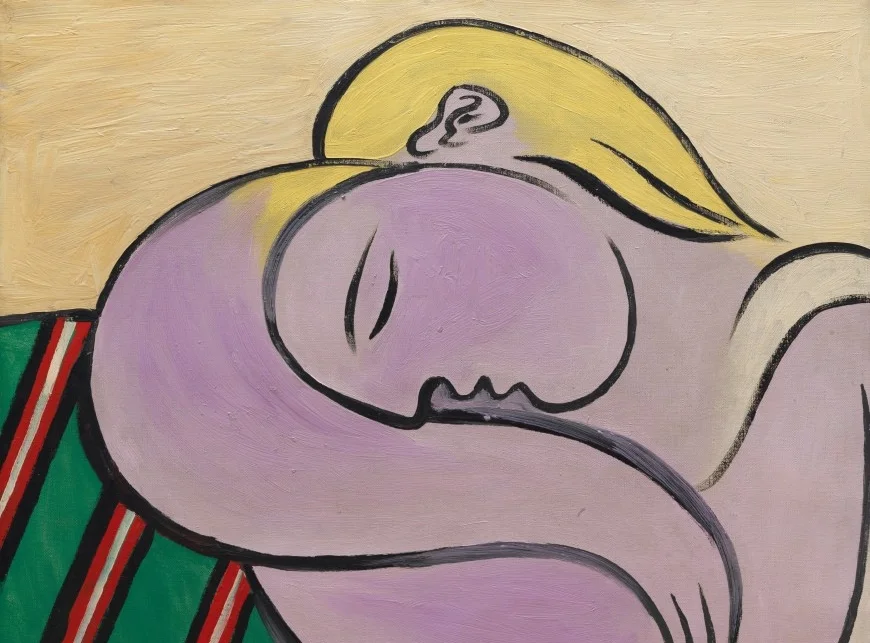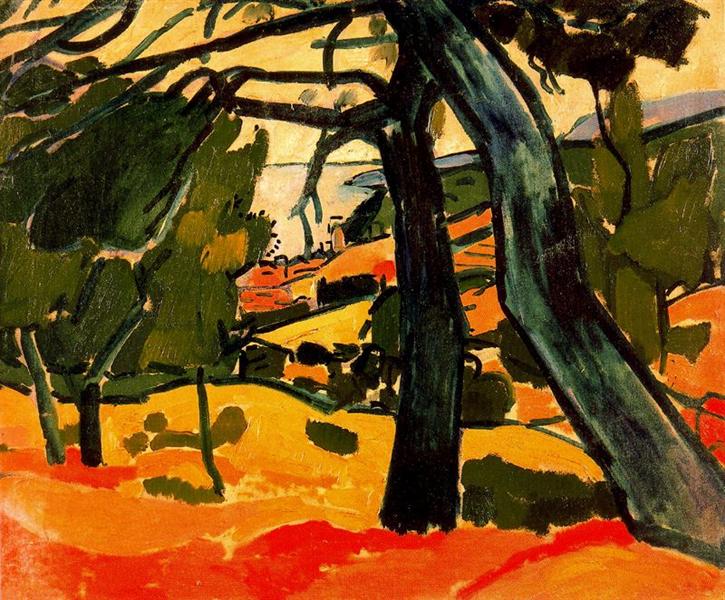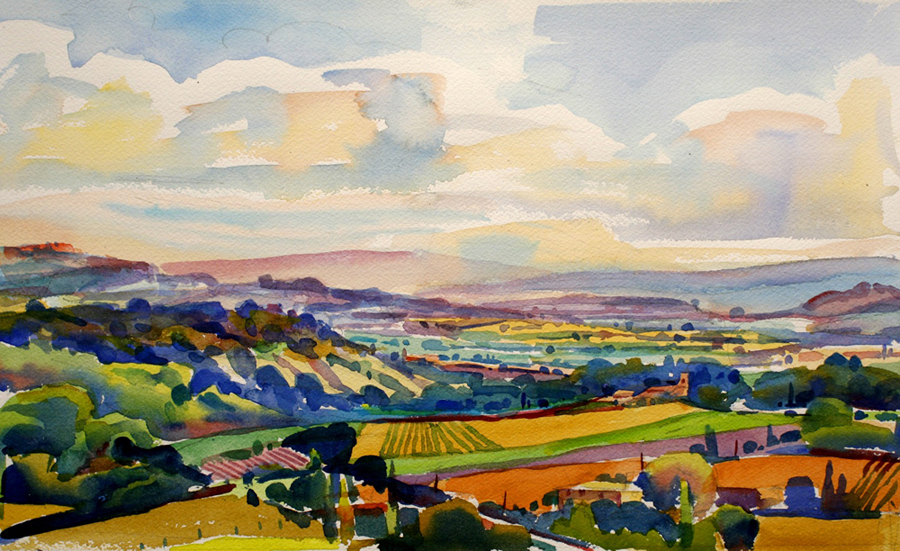Child Mind/Artist Mind
Every child is an artist. The problem is how to remain an artist once we grow up.
Pablo Picasso
Pablo Picasso, "Woman with Yellow Hair" (detail), oil on canvas
My father was a commercial artist, and when I was a child, I was always playing with the art supply leftovers he brought home from his office. There I was at five years old, perched on the bench at our kitchen table, drawing with a few stubby colored pencils on a newsprint pad. That big empty piece of paper was a place waiting to be populated, a gateway to my imagination.
Joan Miro, "Catalan Landscape (the Hunter)", oil on canvas
Bringing the paper alive with lines and colors felt effortless. Because to my child mind that flat surface held magic, I created a balanced and complete composition without giving it a second thought. It was as easy as, "Here's the sun at the top, here's the house at the bottom, and that line from edge to edge is where earth meets sky."
Nicholas de Stael, "Landscape by the Sea", oil on canvas
What happened to that fluidity of thought and motion? Where did it go? Because I know it went away somewhere, at least for a time.
Paul Klee, "St. German, near Tunis", watercolor
The answer is that my early artist self disappeared because I started to grow up. At age ten, I became obsessed with fashion design, filling page after page of little sketchbooks with skinny models in mini-dresses. The paper was no longer magic. It had become just paper, a medium for the recording of my new, very specialized interests.
My drawings became small, tight, and narrow in scope, with their focus shifting from creating fantastical landscapes to describing dresses and skirts. Fine-tipped markers that could render the details of bows and belts were my favorite medium for these little fashion figures, each centered carefully in the middle of my sketchbook page. My imaginative world with its infinite horizon had vanished.
Robert Cunningham, "Girl in the Bahamas", Gouache on paper
I think my experience is typical. My guess is that you can also remember a time when you colored away happily with your crayons. Then you got older, and you started cataloguing your particular obsessions, whether horses, ballerinas, or soldiers. You began using a pencil with an eraser, and became nervous about getting all the details right. Finally, drawing and painting stopped being fun. Maybe, like most folks, you quit by your teen years, and left art to the talented.
Andre Derain, "Landscape", oil on canvas
My students often tell me they've signed up for my painting workshop in the hope of recapturing some of the unselfconscious joy they felt making art as children. And yes, it's possible to find inside ourselves the child whose hand painted so fluidly, free of self-judgement, and free of the fear of screwing up.
Cynthia O'Leary (workshop student), "Color Value Study", gouache
But to achieve that freedom means letting go of some of our linear, wordy, detail-oriented left-brained adult mind. It means letting go of our need for perfection, our fear of failure. And immersing ourselves in learning the language of visual art, with its complex, wondrous vocabulary of shape, line, and color.
Romare Bearden, "Times Square Evening", watercolor
Artist mind means discovering our child mind again. In doing so, we find our power, maybe the greatest power we humans hold, to transform a blank piece of paper--by painting, by writing, by notes of music--into a new, unexpected world.
Susan Abbott, "Looking towards Roussillon", watercolor
Your comments are welcome below!








